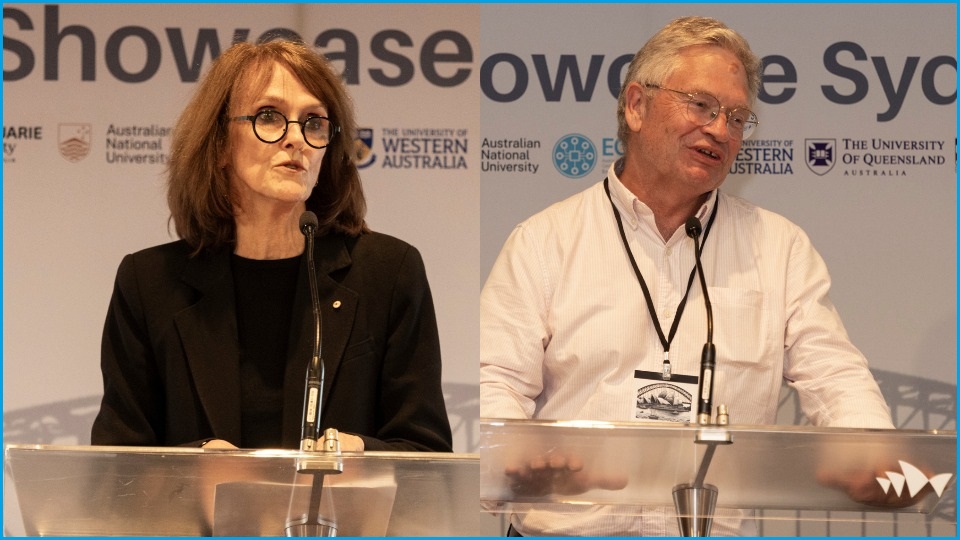Australia's former chief scientist Dr Cathy Foley says “significant” government funding will be needed for the nation to fully develop its quantum technology industry, while New South Wales’ current chief scientist says private investment from “deeper pockets” is also required to support the sector.
The country's quantum industry has received “billions of dollars of investment from government, industry, and investors” and spawned more than 50 quantum companies, but still had “a long way to go” when it came to supporting local startups, Foley said on Wednesday.
“We don’t do so well to support these companies to be medium and hopefully multinationals that have new brand names that we will all know,” she said.
A longtime supporter of quantum research, Foley made the comments during an event at the Sydney Opera House which marked the forthcoming June closure of the Australian Research Council’s Centre of Excellence for Engineered Quantum Systems (EQUS).
“We need to collectively champion our quantum industry and tell the story here — and we need to tell it internationally — about how this is a unicorn moment for Australia,” Foley added, referring to so-called ‘unicorn’ startups which have reached at least $1 billion in value.
“We rarely have the capability, the capacity, and the ambition all at the same time — that has put us in this prime global position.”
‘We can’t just spend government money’
New South Wales chief scientist and engineer Hugh Durrant-Whyte argued while Australia “should double down” on investing in quantum technologies, more private investment was needed — including from overseas.
“We can’t just spend government money — at some point it will run out,” he said at the event on Wednesday.
“We need to get people with deeper pockets from the US and Europe and Asia to fund real stuff going on here, and real companies.
“I think we can do that, I think we’re in a good position because of the [Australian] talent.”
Durrant-Whyte said while he saw quantum computers as a long-term goal, Australian quantum sensors and other quantum technologies were “ready for prime time”.
“We have to really bring in that private capital to invest big time, in my view, in quantum engineering and quantum technologies — not quantum computing as much,” he said.
“… We’ve got to get smarter about attracting private investment into this country to be able to afford to really invest in quantum.”
Foley pushes for ‘significant support from governments’
Foley warned against governments allowing private investors to “take it from here” and argued evidence showed that approach “does not work”.
“The invisible hand of the market needs to be coloured in with ongoing significant support from governments,” she said.

Australia's former chief scientist Dr Cathy Foley speaks at an EQUS showcase event at the Sydney Opera House. Photo: Fiona Wolf / Supplied
Foley said quantum would be “a really important part of Australia’s prosperity” as the country continued to transition its economy away from fossil fuels and minerals.
“Along with the related areas of semiconductors, photonics, advanced manufacturing, and materials processing, I think we need to be all in on this,” she said.
Foley joined the CSIRO board in January when she was replaced in the role of chief scientist by oceanographer and entrepreneur Professor Tony Haymet.
Governments out-spending private investors on quantum
The first State of Australian Quantum report, released by the federal Labor government in November 2024, found governments across the country had out-spent private investors when it came to quantum technologies.
While the report found more than $1 billion had been invested in quantum by governments in the 18 months prior to its release, only $179 million of private capital had been put into Australian quantum companies in the same time.
Foley praised outgoing minister for industry and science Ed Husic for his support of the nation's quantum sector on Wednesday, and argued Australia's Quantum Strategy had been “run on steroids” by Labor under his leadership.
“He went back multiple times [to federal cabinet] in order to get the funding there, and he put himself on the line,” she said.
Husic had faced some criticism over Australia’s largest public investment in quantum, which saw the federal and Queensland governments collectively pledge almost $1 billion towards American company PsiQuantum's attempt to build a quantum computer in Brisbane.
The deal has been denounced by some local quantum firms and the Liberal-National Coalition, while Queensland’s new Liberal government has been reviewing the $470 million investment in the project made by the state’s former Labor government.
A separate independent review of the deal was due to be handed to the federal government by April.










